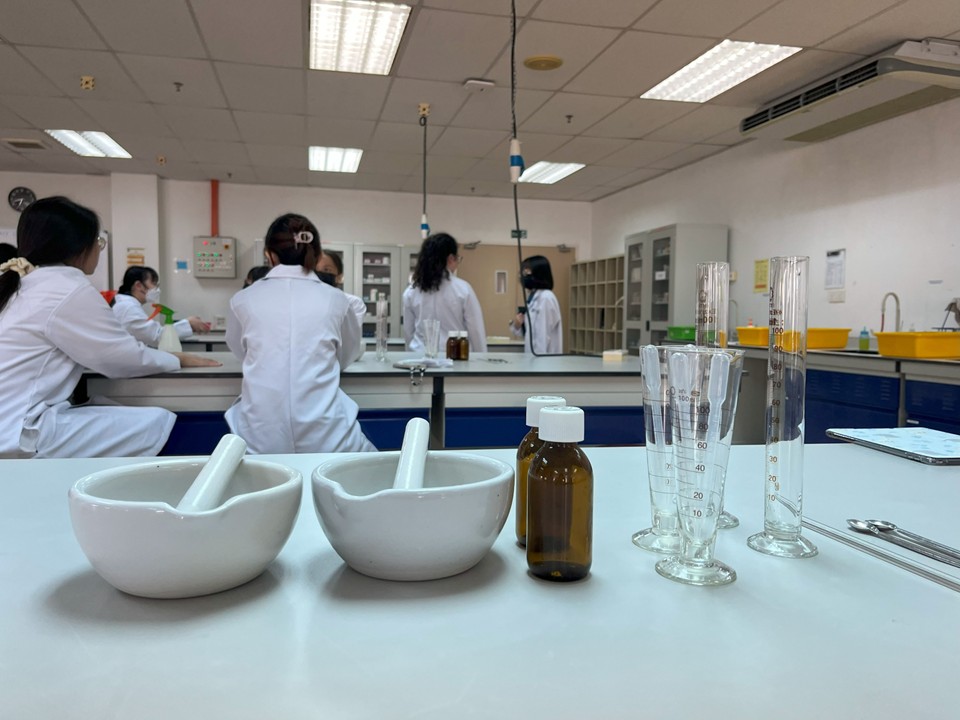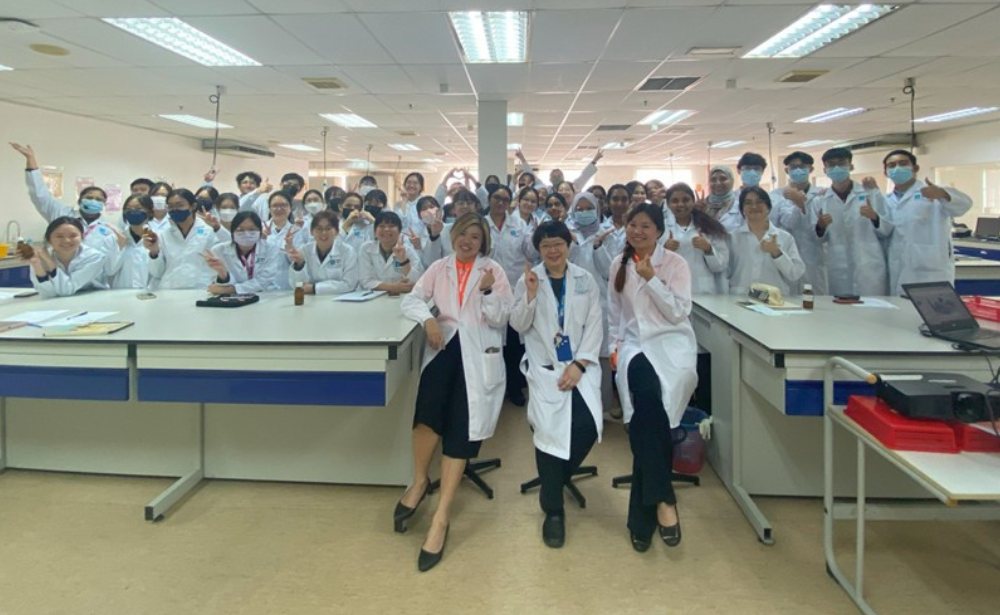Pharmacy students recently immersed themselves in advanced pharmaceutical training through the X-Temp Compounding Workshop, a collaboration with Pharm-D Health Science. The session focused on extemporaneous preparation, equipping participants with hands-on experience in formulating customised oral medications using the X-Temp® Oral Suspension System. This innovative compounding vehicle enables the transformation of non-soluble active pharmaceutical ingredients into safe, effective, and patient-friendly dosage forms, a critical skill in modern pharmacy practice.
SEGi University students were guided through the meticulous processes of pharmaceutical compounding, reinforcing the importance of accuracy, safety, and patient-centred care. This workshop gave them more than practical exposure—it highlighted the vital role of pharmacists in ensuring that medication is not only effective but also tailored to diverse patient needs, particularly for paediatric and geriatric populations where standard dosages may not always be suitable.
The workshop also addressed a key global challenge in healthcare: access to safe, effective, and affordable medicines. According to the World Health Organization, at least two billion people worldwide still lack access to essential medicines, with formulation and distribution challenges contributing to this gap. Extemporaneous compounding, when practised to international standards, plays an important role in closing these healthcare inequalities by enabling pharmacists to prepare medicines for patients who would otherwise go without.
This initiative reflects SEGi’s strong commitment to bridging academic learning with industry-standard practices, ensuring graduates are well prepared to serve in a healthcare system that is rapidly evolving towards personalised medicine. Research indicates that precision and personalised medicine could improve treatment outcomes for up to 60% of patients with chronic conditions. By embedding these skills early, SEGi is nurturing future pharmacists who will not only serve communities locally but also contribute to addressing global healthcare disparities.
Experiential learning opportunities such as this also strengthen partnerships between academia and industry, a key driver in advancing healthcare innovation. By working directly with Pharm-D Health Science and integrating tools like X-Temp, students benefit from a learning experience that mirrors real-world pharmaceutical environments and regulatory standards. These collaborations ensure that pharmacy education remains aligned with international best practices while producing graduates who are globally competitive.
This event is organised in support of the following United Nations Sustainable Development Goals (SDG):
SDG 3: Good Health and Well-being
SDG 4: Quality Education
SDG 9: Industry, Innovation and Infrastructure


